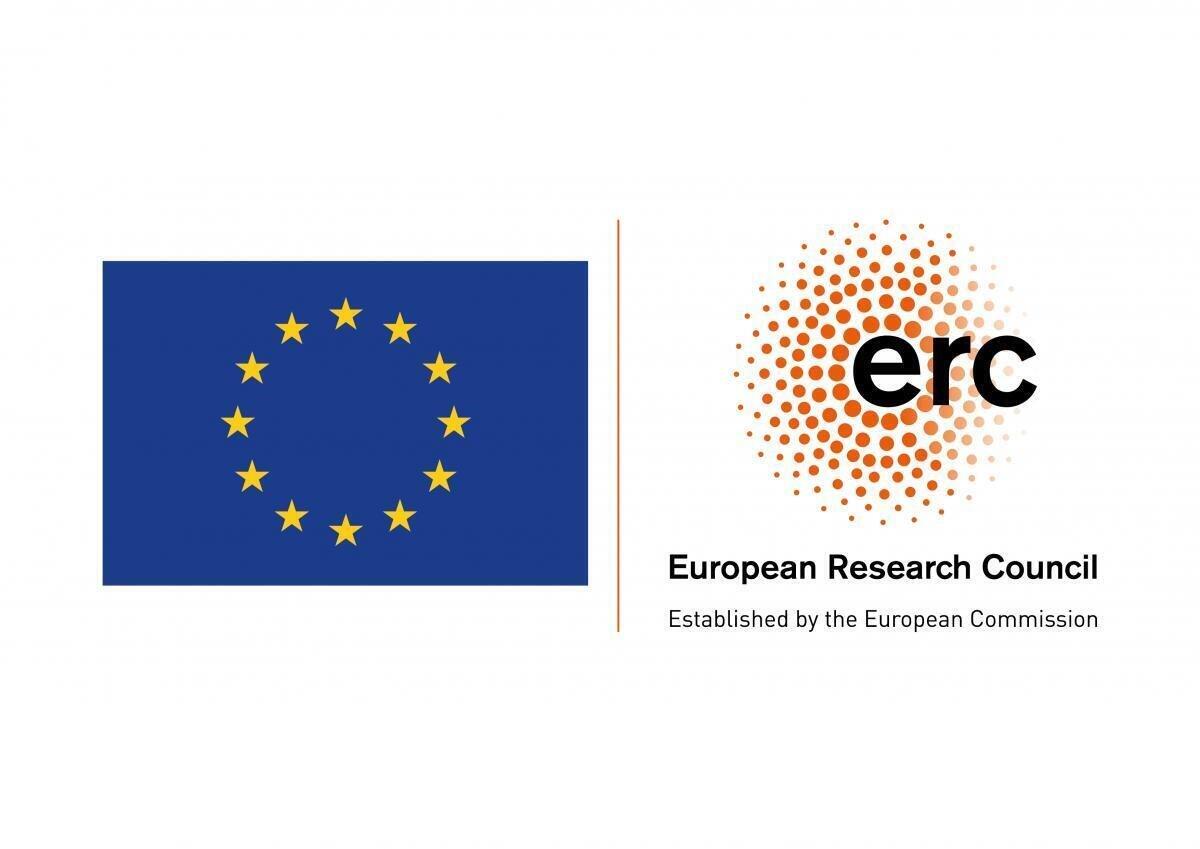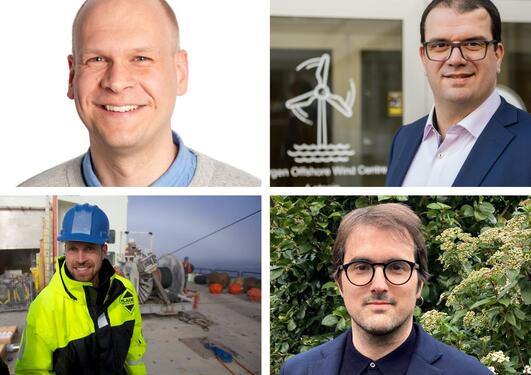Will develop groundbreaking offshore wind technology with ERC grant
With a prestigious grant from the ERC, Cristian Guillermo Gebhardt plans to solve key issues within offshore wind with smart algorithms and raw computer power.

Main content
Cristian Guillermo Gebhardt is Associate Professor in offshore wind energy at the Geophysical Institute at the University of Bergen (UiB) and Director of the Bergen Offshore Wind Center (BOW). Today it was announced that he is one of four researchers at UiB who have been awarded the prestigious Consolidator Grant from the European Research Council (ERC). The grant offers him funds to carry out the research project Data-Driven Approaches in Computational Mechanics for the Aerohydroelastic Analysis of Offshore Wind Turbines (DATA-DRIVEN OFFSHORE).
"A massive upscaling of offshore wind power is necessary, but the current methodology for analysis and design in the field has reached its limits. DATA-DRIVEN OFFSHORE will investigate a new simulation technology for offshore wind turbines that can help solve a bottleneck that currently prevents further development of offshore wind power", says Gebhardt.
Leading role in offshore wind power development
"The ERC grant represents an enormous opportunity for me to conduct research on ideas that are beyond the current state-of-the-art. The project enables UiB to take a leading role in the sustainable development of offshore wind power", says Gebhardt.
In 2012, he completed his doctoral studies related to the aeroelasticity of onshore wind turbines. Up until 2021, he worked at Fraunhofer IWES and Leibniz Universität Hannover.
After less than two years at UiB, he has now secured the prestigious ERC grant.
"I have received excellent support from colleagues at the Geophysical Institute from day one. I am very grateful for that."
May accelerate upscaling of offshore wind
One of the objectives of the European Green Deal is to install 300 GW of offshore wind capacity by 2050. DATA-DRIVEN OFFSHORE aims to solve some of the issues that could prevent Europe from reaching this goal.
"One of the major challenges in offshore wind technology today is that it is so far not possible to directly integrate experimental data into aerohydroelastic simulations of offshore wind turbines", says Gebhardt.
He explains that an aerohydroelastic simulation model is a digital twin of an offshore wind turbine that simulates how the turbine's various parts react to the influence of wind and waves.
"Today, experimental data is usually included in the aerohydroelastic analysis indirectly through offline calibration. One of the disadvantages of this approach is that the underlying models remain unmodified, and further physics in the data remain unavailable", says Gebhardt.
He explains that DATA-DRIVEN OFFSHORE proposes to integrate such valuable experimental data directly into aerohydroelastic simulations. The wind turbine's digital twin would then be continuously updated with a constant stream of data from its real twin. He will use data-driven computational mechanics (DDCM) to make this happen. DDCM is an advanced computing framework that is still in its early stages.
"I plan to investigate the aerohydroelastic behavior of offshore wind turbines relying truly on experimental data, capturing the hidden features that such data contain. If the project is successful, it will be easier to more efficiently predict how offshore wind turbines will 'behave'. This will make it possible to optimize the operation and maintenance of turbines. The project will also enable the development of larger and more efficient wind turbines. More efficient turbines will consequently reduce the cost per unit of power produced", says Gebhardt.
"The project can trigger a change of paradigm for future generations of offshore wind turbines. This is necessary in order to develop offshore wind on a scale large enough to succeed with the green shift."
Groundbreaking work
"Linking detailed, but incomplete, observations with algorithms and computer power to solve problems within offshore wind power is groundbreaking work", says Tor Eldevik, Head of the Geophysical Institute at UiB.
He is impressed by Gebhardt and the work which has awarded him the prestigious grant.
"I am incredibly happy and proud of Cristian. This shows that the Bergen Offshore Wind Center, which was established in 2018, is undertaking internationally recognized top-level research", says Eldevik.
He adds that the grant also represents a feather in the cap for the wider team at the institute and UiB’s administration.
"This ERC grant is, of course, primarily a result of Cristian’s own achievements, but there is also a larger team around him who have helped make this happen, not least our research coordinators and administration at UiB", says Eldevik.
"ERC grants are highly prestigious grants. So, the fact that two projects from the Geophysical Institute have been awarded ERC Consolidator Grants today – both DATA-DRIVEN OFFSHORE and Professor Kjetil Våge’s project in the field of ocean and climate research - confirms that we are at the level we want to be", says Eldevik.
Four research talents will get the opportunity to hone their skills while working on Gebhardt’s project, as a post-doc and three PhDs will be employed soon. Furthermore, the grant will provide even better conditions for collaboration and knowledge sharing between the Geophysical Institute, BOW and leading research environments in the USA, Brazil and several other countries.
"Norway and the world are at the cusp of making offshore wind power a reality on a really large scale. The project's timing could not have been any better. We have a unique and highly competent research environment in Bergen which is ready to contribute critically important research and education that will accelerate the green shift", says Eldevik.

